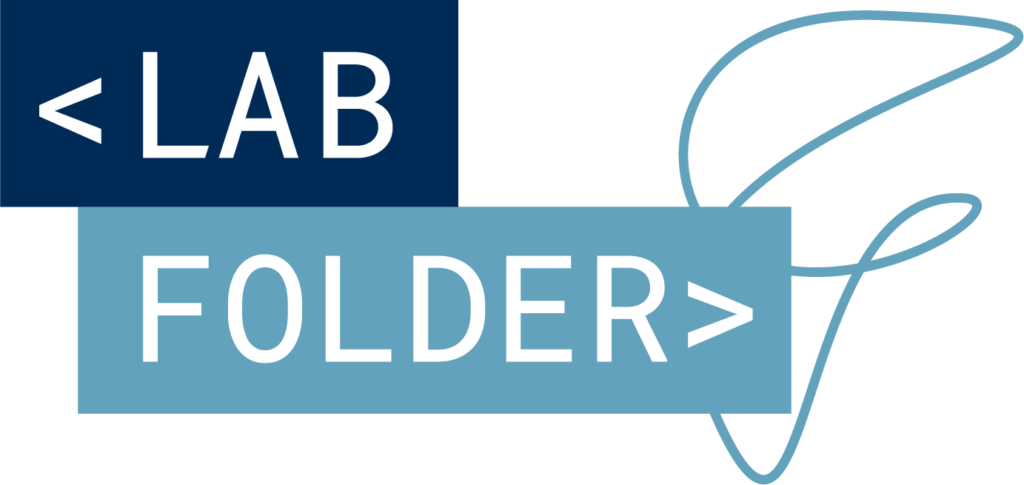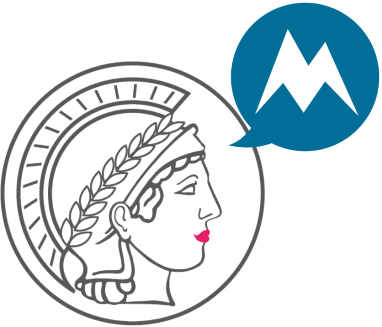Research services and tools for group leaders of the MPG
This is a selection of services which might be useful for you, your group or your research. All services are exclusivly for researchers at the MPG.
If you can’t find what you are looking for or if you have any questions, feel free to call MPDL`s MPG-City Service Hotline +49 (0) 89 38602-243 (Monday – Friday 7:00-19:00) or send an e-mail to mpg-city-service [at] mpdl [dot] mpg [dot] de.
Keeper

Self Service Archiving – Profit from safe data storage, seamlessly integrated into your research workflow.
With the Keeper Service you can easily sync and share your project data and in addition we take care that your work is properly archived in the Max Planck infrastructure. Convince yourself of the reliable and high performant file syncing algorithms and the built-in file encryption. Support your team with the Keeper collaboration functionalities. With storing your data in Keeper you can be sure to fulfil the regulations of the Max Planck Society as well as the German Research Foundation to ensure ‘good scientific practice’. Or you deposit your data to the Keeper Service after your project ends for long term compliant archiving.
The Keeper Service is free of charge for all Max Planck employees. If you are from an external organization and collaborate with the Max Planck Society you are also invited to exploit the Keeper Service for all Max Planck related projects. Please contact the Keeper support team.
Go to Keeper
Labfolder

Electronic laboratory notebook designed for scientists by scientists
Labfolder is the place to record, integrate and manage scientific data. With this electronic laboratory notebook (ELN) software researchers can handle the scientific documentation effortlessly with a lot of support for compliance with academic standards. Labfolder fully supports the Code of Conduct for Safeguarding Good Academic Practice. The Full Audit trail and the possibility of digital signatures ensure intellectual property and take care for data integrity.
Labfolder is characterized by an easy to handle rights and roles management. For example, admin users are able to prevent group members from deleting entries or projects and are allowed to view group members’ lab notebooks. Labfolder makes it easy to create groups and subgroups, to define content share settings, to send messages within a group, and to use comments to discuss data. Furthermore, it is possible to assign tasks to group members.
It is not only possible to import PDF files, further processing of imported word or excel files can also be done within Labfolder. The integration of external apps like Figshare completes this ELN.
If you are interested in using Labfolder as an MPG researcher, please contact labfolder [at] mpdl [dot] mpg [dot] de.
Go to Labfolder
Research Funding Information

Enlarge your funding base
Are you looking for your next research funding?
MPDL provides you with access to up-to-date research funding information through dedicated databases. These comprehensive tools contain information on funding opportunities and many related news items.
Goto Research Funding Information
Edmond

Give a home to your open data
Edmond is a research data repository for Max Planck researchers. It is the place to store completed collections of scientific data sets with open access. Edmond can be used to publish raw data for re-use by other researchers as well as supplementary secondary data underlying a certain publication. Our research data repository features a non-restrictive metadata schema definition, as simple as you like and as complex as your parameters require.Edmond is provided as a central service by the Max Planck Digital Library. It is based on the Open Source Software imeji.
Goto Edmond
iThenticate

Prevent plagiarism in your work
iThenticate is a leading plagiarism checker service. It makes it easier for you to identify and attribute any material in that may contain unintentional plagiarism. As an author you can ensure that you have sufficiently cited your sources. As an reviewer it can help you to detect plagiarism and attribution issues that could potentially damage reputations or spawn repercussions like financial and legal obligations.
iThenticate compares your uploaded documents to published research articles from global scientific, technical and medical publishers and web content. Highlighted text will include text that has been properly quoted and cited so it is not necessarily plagiarized. You will need to verify that every highlighted section has been properly quoted, summarized or paraphrased.
Note: iThenticate is a hosted third party service. As you need to upload your documents to the company’s servers, it is not suited for documents containing sensitive information.
Goto iThenticate
Minerva Messenger

Make your content citable
Your managed Slack alternative
The Minerva Messenger (based on Mattermost) brings all MPG communication together, making it searchable, accessible & easy to use – anywhere. You can create your chat channels, communicate with team members, discuss current topics and share your data files. Also, you can invite external collaboration partners & use Zoom at any time. Furthermore, Minerva Messenger offers functionalities of Boards to manage projects and Playbooks to orchestrate workflows, supporting you and your team to arrange project tasks, meeting minutes, and re-occurring processes. This innovative platform is provided & maintained by the MPDL, which means all your data is safe within our secure MPG infrastructure.
Go to Minerva Messenger
DOI Service

Make your content citable
Assigning persistent identifiers to research data and unpublished text material is of growing importance to improve the citability of these resources. This is a necessary step towards enabling easy data distribution and reuse. The MPDL is supporting Max Planck researchers with registering Datacite DOI names to scholarly objects stored in MPG repositories. This is done in cooperation with the German National Library of Science and Technology (TIB).
Goto DOI Service
MPDL Access Magic

Get access, get your journal and learn how to read articles & eBooks from everywhere at any time
It has been a concern of the MPDL for quite a while to present all information and instructions regarding access to electronic resources licensed MPG-wide in a structured and appealing manner. The so-called MPDL service „Access Magic“ which includes the services „Campus Magic“ and „Travel Magic“ has been summarized and re-edited on a new homepage.
The homepage, with its many hints and concise information about access, IP addresses, electronic resources, most up-to-date retrieval tools, or general background details, may be of interest not only to information and IT professionals, but also to MPG scientists.
Watch our movie trilogy and get more information about MPDL Access Magic
Open Access Support

One stop shop for Open Access questions
Open Access Support is your contact point for all questions related to Open Access. If you are a Max Planck researcher you may want to obtain information on how the Max Planck Society supports Open Access, for instance to help you with your copyright concerns or with handling Open Access article charges. So please contact us!
Please note: Librarians at the Max Planck Institutes also work on Open Access and may want to support you locally at your institute.
Goto Open Access Support
Conference Centers of the MPG
You are looking for a nice location for your own group retreat, next meeting or conference? The MPG has two conference centers in Germany:
Schloß Ringberg I Tegernsee I Bavaria
Harnack House I Berlin
Central administrative services of the MPG
You are looking for internal information like certain phone numbers or email addresses within our society? Try the MPG intranet website. Get precise information about administrative processes and rules (Regeln, Richtlinien, Handreichungen) in the MPG Organisationshandbuch (password controlled). You want to get latest research news within the MPG? Look at the MPG research news page or read more in the MPG Research Journal, which is now available as eMagazine for Apple iPad or Android devices. You don`t want to miss any news? Subscribe to MPG research newsletter.
High performance computing and support for large scale IT-projects
MPCDF provides high-level support for the development, optimization and visualization of parallel applications to MPIs with high-end computing needs in fusion research, materials sciences, theoretical chemistry, polymer research, astrophysics, and an increasing variety of other areas (as documented by the large number of applicants requesting the new HPC system for the Max Planck Society). The codes supported by MPCDF usually cover several tiers of the IT supply pyramid of the MPG, ranging from mid-range systems at the institute level up to national and European supercomputers, for a number of scientifically outstanding applications.
Goto Services of the MPCDF
Servers, Web hosting, Back up, Email, Mailinglists and Eduroam
GWDG offers a range of information and communication services for science. The joint computing center of the Georg-August-Universität Göttingen and the Max Planck Society provides basic IT services including Servers, Web hosting, Back up, Email, Mailinglists and Eduroam, so that you can carry out scientific work productively.
Goto Services of the GWDG
